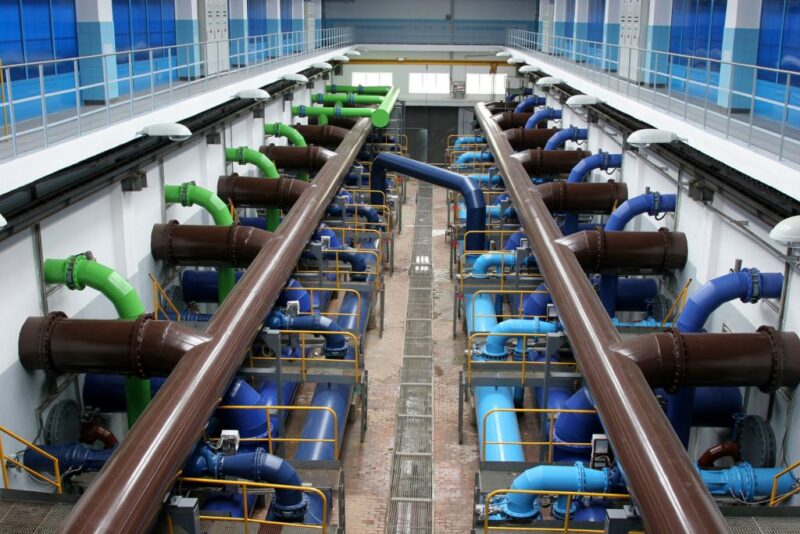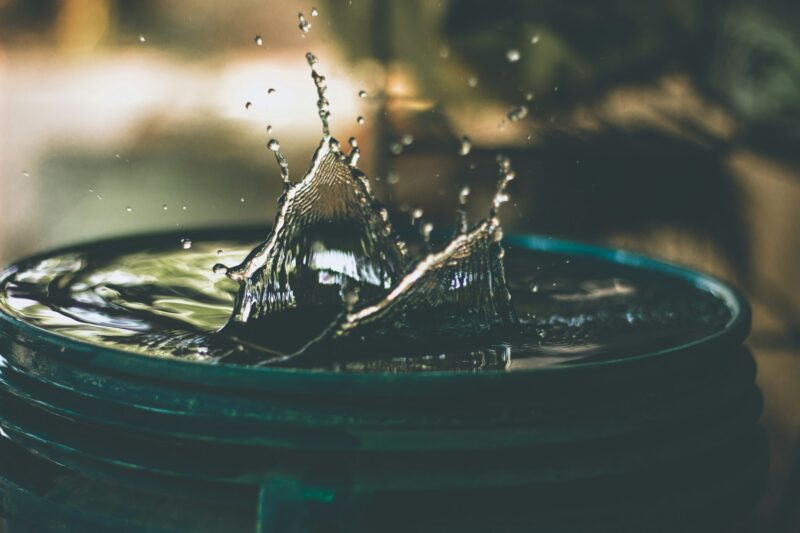Water, our planet’s lifeblood, is essential for everything we do. It’s there when you turn on the tap for a glass of water or when you shower in the morning.
Yet, despite its importance, water is often taken for granted. Let’s talk about why conserving it should be everyone’s top priority.
The Basics & Water Conservation Definition

Let’s start with the basics. Water conservation means using water efficiently to reduce unnecessary water usage. It’s about making smart choices that lead to long-term sustainability.
In essence, it’s about not being wasteful and ensuring that there’s enough water for everyone and everything.
Why Is Water Conservation Important?
1. Finite Resource
Earth might look like it has an endless supply of water, but only about 1% of that water is accessible freshwater. The rest is salty or trapped in glaciers. Considering this, every drop counts.
2. Climate Change
As the climate shifts, water availability becomes more unpredictable. Droughts become longer and more severe, while some areas may face excessive rainfall, leading to flooding.
If we conserve water, we can better manage these changes and ensure there’s enough to go around.
3. Environmental Impact
Overusing water sources like rivers and lakes can lead to ecosystem damage. Fish populations dwindle, plants suffer, and entire ecosystems can collapse. Water conservation helps maintain these natural habitats.
4. Economic Factors
Treating and delivering water is expensive. The less we use, the lower the costs for everyone. Plus, conserving water reduces the strain on water treatment facilities, leading to fewer upgrades and repairs.
Simple Water Conservation Methods
You don’t need to make huge sacrifices to make a big impact. Small changes in daily habits can lead to significant savings. Here are some easy methods:
- Fix Leaks: A dripping faucet might seem minor, but it can waste gallons of water over time. Fixing leaks promptly is a simple yet effective way to save water.
- Efficient Fixtures: Install low-flow shower heads and faucets. They use less water without sacrificing pressure.
- Smart Landscaping: Create a water conservation garden. Use native plants that require less water, and consider drip irrigation systems that minimize water waste.
- Mindful Usage: Turn off the tap while brushing your teeth, and take shorter showers. Small actions add up.
- Full Loads Only: Run dishwashers and washing machines only when full. This maximizes water use efficiency.
The Role of Agriculture
Agriculture is a massive water consumer, accounting for about 70% of global freshwater use. Implementing water-efficient practices in farming can have a substantial impact.
Techniques like drip irrigation, which delivers water directly to plant roots, can significantly reduce water use. Additionally, choosing crops that are suited to the local climate and soil can reduce the need for additional watering.
Water Conservation in Industry

Industries also have a crucial role in conserving water. Many industries are adopting water recycling processes, where wastewater is treated and reused. This not only conserves water but also reduces the amount of pollutants released into the environment.
Companies that invest in water-efficient technologies not only help the planet but can also see financial benefits from reduced water and wastewater costs.
Community and Policy
On a larger scale, communities, and governments play a crucial role in water conservation. Public awareness campaigns can educate people on the importance of conserving water and how to do it.
Policy measures, such as water restrictions during droughts and incentives for water-efficient appliances, can drive significant change.
A Personal Responsibility
It’s easy to think that individual actions don’t matter in the grand scheme of things, but they do. If everyone makes a small effort, the collective impact can be enormous.
We all share the responsibility to conserve water, not just for ourselves, but for future generations.
Water Conservation Garden
Creating a water conservation garden is a rewarding way to contribute. Start by choosing plants that thrive in your local climate without excessive watering.
Use mulch to retain soil moisture and reduce evaporation. Install a rain barrel to collect and store rainwater for garden use. These steps create a beautiful garden while conserving water.
Why We Must Act Now
Water conservation is not just an environmental issue; it’s a matter of survival. By adopting water-efficient habits and supporting conservation efforts, we ensure a sustainable future.
It’s about respecting the planet and all its inhabitants. So, next time you turn on the tap, remember that every drop counts. Let’s make water conservation a global priority, one small action at a time.
The Ripple Effect
Think about it: water conservation isn’t just about saving water at home. The ripple effect is real. When we use less water, we save energy, reduce greenhouse gas emissions, and lighten the load on our aging infrastructure.
It’s like the eco-friendly trifecta. Plus, conserving water means we’re less likely to experience those pesky water shortages that seem to be cropping up more and more.
Summary
Water is more precious than we often realize. By conserving it, we protect our planet, our communities, and our future.
Whether it’s fixing a leak, taking shorter showers, or planting a water conservation garden, every effort makes a difference. Let’s be water-wise and ensure that there’s enough for everyone, now and in the future.

